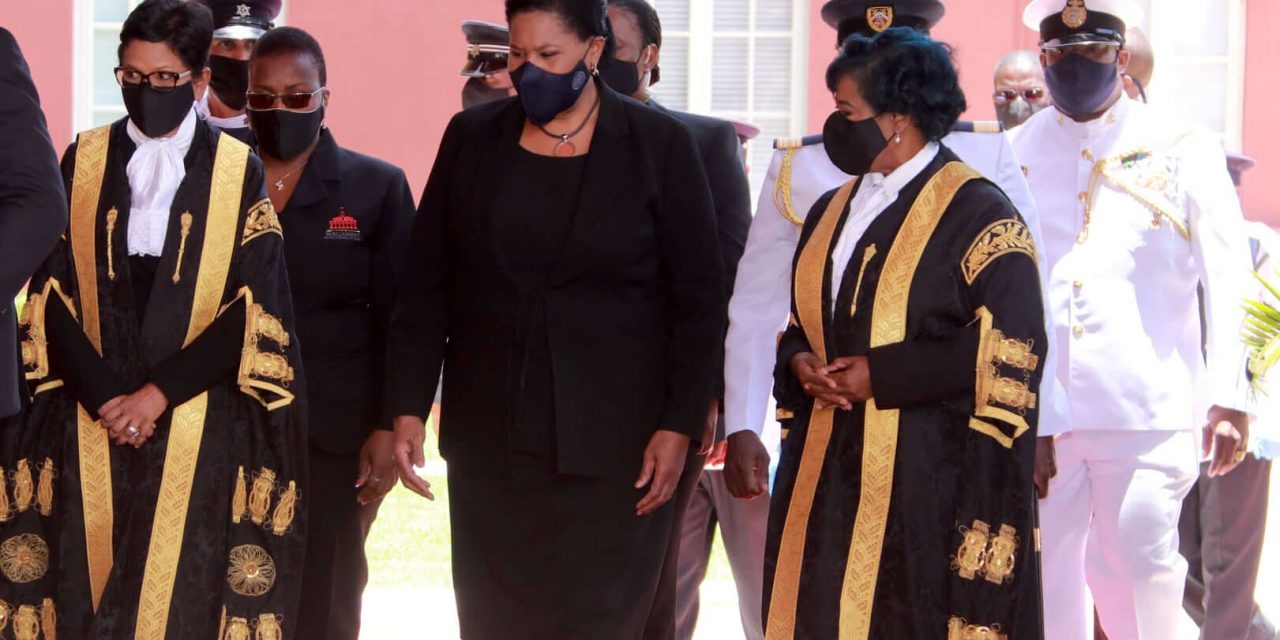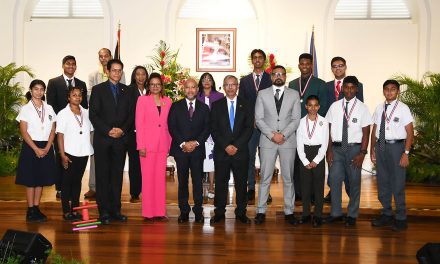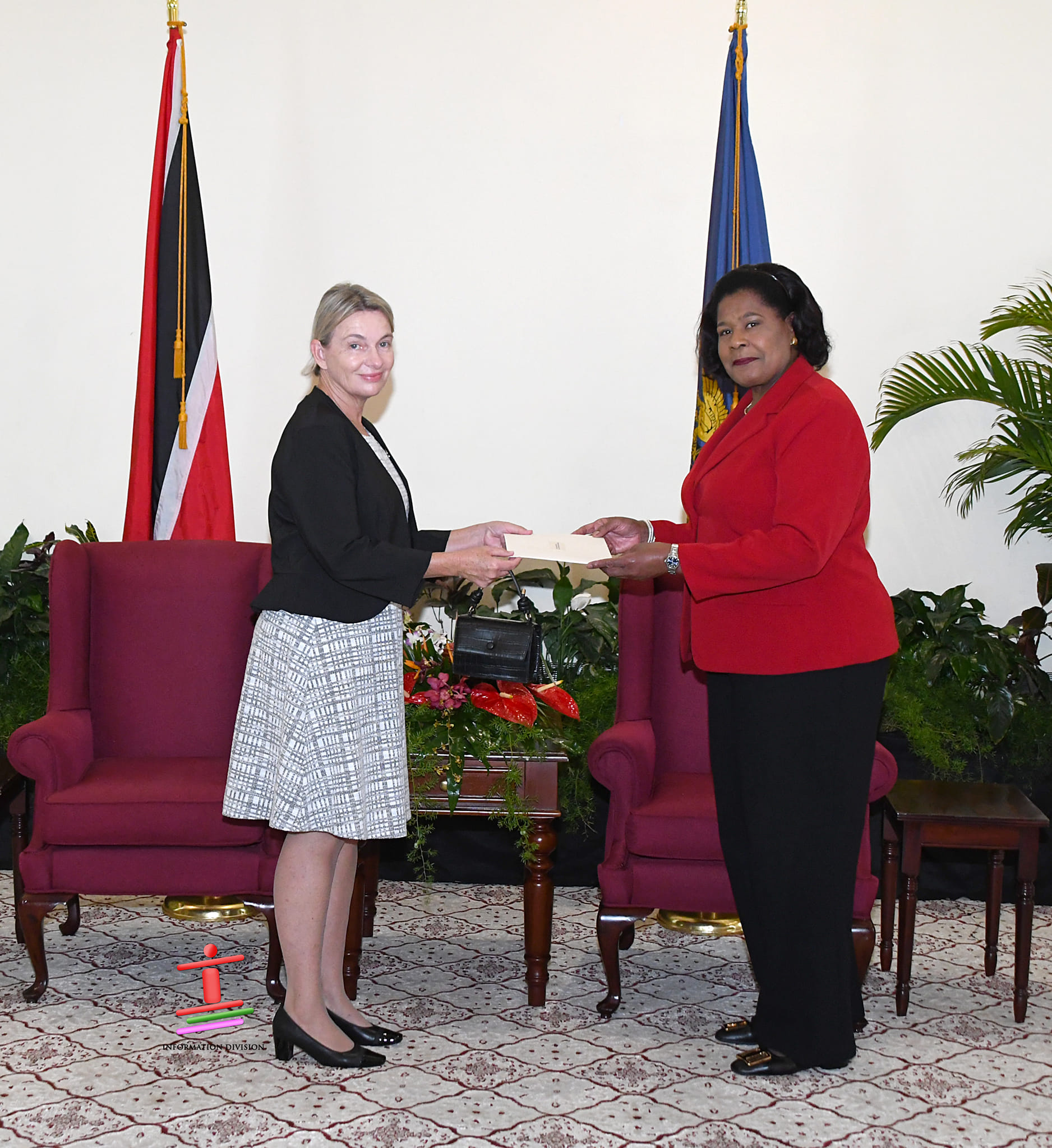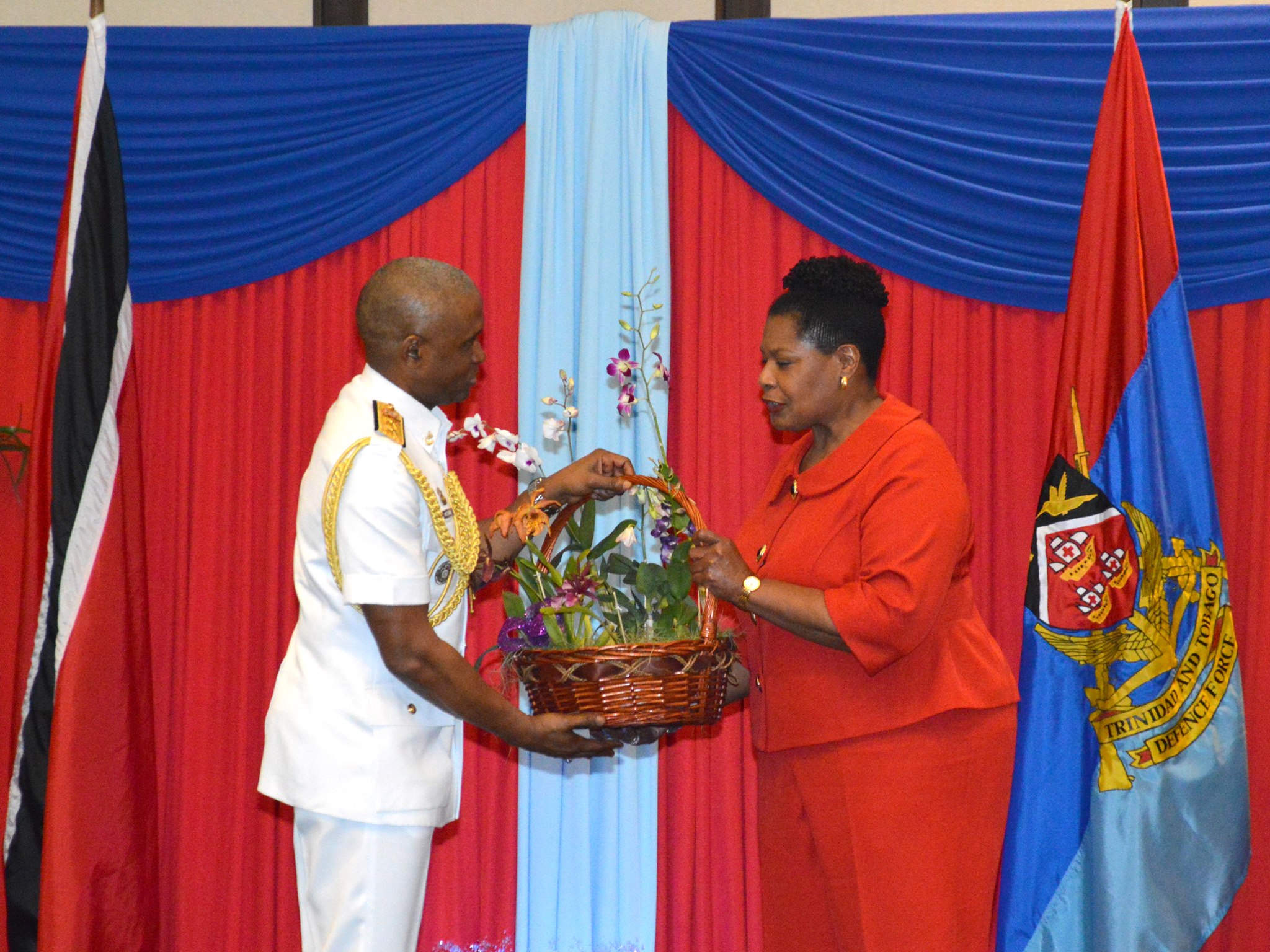I thank Madame Speaker for her kind invitation to address both Houses at this 1st session of the 12th Parliament of the Republic of Trinidad and Tobago. As the only member of Parliament whose tenure ran unbroken in the transition from the last Parliament to this one, I make bold to welcome you to this afternoon’s proceedings, whether you are here for the first time or the umpteenth.
You all took an oath this morning to conscientiously and impartially discharge your responsibilities to the people of this nation. The essence of the relationship between Members of Parliament and the public is one of trust, confidence and fidelity. Notwithstanding some significant milestones over the years, the strength of that bond has been eroded by the failure of successive Parliaments to deliver consistently on the reasonable expectations of the populace. And, to make matters worse, citizens have come to feel that they have been repeatedly forsaken, betrayed and mamaguyed by those they have put in a position to make laws for their peace, order and good governance. Members of the 12th Parliament, I need to ask you a personal question. Can we trust you? I’m asking for a friend. Or more precisely, firstly, for the roughly 658,000citizens who on August 10th did their civic duty hoping that you prove ready, willing and able to ensure their security, prosperity and future, as well for the rest of the population. Honourable Members, can we trust you to discharge your functions in accordance with your oath? Your core function is law-making, an essential service in our democracy, one which gives you the power to transform the lives of our citizens and our nation. Each of you seated in these chambers has the primary purpose of conducting the people’s business. Your being here today suggests your willingness to discharge your duties in a thorough and responsible manner and to treat all persons equally. Whether you arrived via the ballot box or by virtue of selection, it is vital at this time that you have full grasp of your remit and your limitations and are totally committed to the task at hand. That is the only way you will be able to keep the promises inherent in your oath. In the words of author Roy T. Bennett “Consistency is the true foundation of trust. Either keep your promises or do not make them.” You might think this advice is a little too late, since you already made your promises to the nation this morning in your oath, but now is the right time to begin keeping those promises. Can we trust you to measure up to the standards required of high office? You have heard no doubt that with great power comes great responsibility. Apart from your legislative function, there are other requirements and expectations of you. I see many new parliamentarians among our number. You will have to mature into your role very quickly. Make no mistake, yourgrace period, if indeed there was one, was between the election or your appointment and the convening of Parliament today, and from today you are expected to get down to managing the affairs of the public. The novelty of being a parliamentarian is not an acceptable excuse for any shortcomings. In this form of service, there is no such thing as “beyond the call of duty”. Be prepared to work selflessly and tirelessly for the duration of your term. It will be a long haul. The Prime Minister’s recent reference to 60 months perhaps puts it in its right perspective. Drawn out days, sleepless nights and lengthy debates into the wee hours of the morning will be par for the course but they are just some of the sacrifices you must be prepared to make. Parliament requires persons of high calibre. Respect, self-control, and patience must be your guiding principles both within and without these halls. It is said that a person’s character is indivisible. You are required to conduct yourselves in your private affairs in the same exemplary manner that you conduct the affairs of Parliament. You are automatically role models for many of our youngest citizens and must uphold the highest standards of behaviour for the benefit of both the business of these chambers as well as for those who will take pattern. Many of your offices fall among the top tiers of our table of precedence and as responsible office-holders, you are expected to acquit yourselves accordingly. Can we trust you to listen to what we are saying, empathise, and show compassion for our hardships? The general complaint is that after an election, constituents only see their Members of Parliament in the lead up to the next election. When canvassing for votes, you are omnipresent, all ears and full of concern for their plight but once you win your seat you become remote, busy, and unavailable to your constituents. The people who exercised their franchise in your favour want to be assured that they will get value for their vote. They want you to listen to, not just hear, what they are saying, understand their hopes and fears, and bring their concerns to this august body. You are now their power-source, as they were yours, eighteen days ago. They want you to use your time in these chambers to represent their interests, not to engage in frivolous and irrelevant crosstalk. Although I do admit that a little well-placed picong can ease the tension. On another level, when Parliament’s Committees interact with Government officials, interested parties, legal and other professional associations and the general public, there must be a genuine attempt to solicit valuable input that is considered seriously in the eventual law-making process. Members of Parliament, can we trust you to put aside narrow partisan interests and work together for the good of us all? And can we trust the non-partisan Independent bench to remain above the fray and serve the interests of the whole? The difference between a politician and a statesman, according to American writer James Freeman Clarke, is that a politician thinks about the next election while the statesman thinks about the next generation. As you make your contributions and finally vote on proposed legislation, what is your true focus? Of course, voting along party lines has its place, but at the end of the day, what is the desired outcome? It can only be the welfare of Trinidad and Tobago as a whole. The man in the street is not concerned about the political gamesmanship that often unfolds in these Chambers. He wants timely legislation that improves his quality of life and uplifts the nation, and that requires that parties, without sacrificing their principles, work together to achieve the common good, and that the Independent Bench, serves to bridge any gaps by its objective approach and loyalty to only the people. If there was ever a time for Government, Opposition, and Independent Benches to work together, that time is now, given the Covid-19 pandemic and its exacerbation of pre-existing problems. Can we trust you to bring your A-game to these Chambers, taking night to make day if necessary so that you can make a meaningful contribution? Parliamentary debates can sometimes be long and tedious but that does not give carte blanche to members to become disengaged from the process. How many times has the public been witness to members who were nodding off, engrossed in their phones or otherwise showing no interest in the ongoing debate? However challenging the process, members of the public expect you to remain alert in order to actively defend their interests. Whether or not the bill under debate requires your input or is within your area of expertise, it is almost certain to affect some, if not all of your constituents. Even when you are not on your feet, citizens expect your full participation in the process. And when you do make a contribution to the debate, let it be well-informed, coherent and digestible by the average person. There are many sayings about trust, but the one I favour and find apposite for this gathering is by former British politician Chris Butler “Trust is earned when actions meet words”. By putting yourself forward for election and/or by agreeing to be appointed to the Senate, you have spoken. Now is the time for you to act. This afternoon I have asked all the questions, but I invite you to engage in some timely introspection and ask these same questions and others of yourselves and each other. What is my track record in Parliament and elsewhere? What sacrifices am I willing to make? What are my intentions, aspirations and motivations? Are they aligned with my true purpose of serving the people of our twin-island Republic? The correct answers to these questions will reassure us that we can trust you. And that, Honourable Members, is all that we really ask.Address at the 1st Session of the 12th Parliament of the Republic of Trinidad and Tobago







